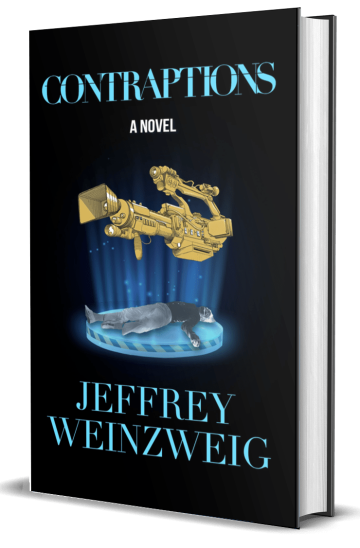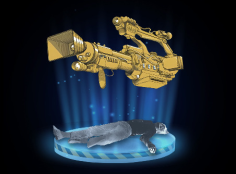In Jeffrey Weinzweig’s Contraptions, the protagonists Derek Cannon and Ojo Jenachukwu are more than just brilliant inventors—they are deeply human characters shaped by personal histories that influence their innovations and decisions. Their stories illustrate how trauma can drive creativity, fueling the desire to solve problems and leave a meaningful impact on the world.

Derek’s Journey: Transforming Loss into Innovation
Derek’s personal history is marred by the traumatic loss of his father in a plane crash, an event that profoundly shapes his character and motivations. The dream sequence in Contraptions, where Derek repeatedly relives the moments surrounding his father’s death, reveals the deep scars this event left on him. His father’s untimely death also planted a seed of guilt and a relentless need for control in Derek’s life, both of which manifest in his career as an inventor.
This loss likely contributes to Derek’s commitment to precision and safety, as seen in the creation of the Jennon QT7. The device’s purpose—preventing surgical mishaps—reflects Derek’s determination to save others from preventable tragedy. For Derek, inventing becomes a way to exert control in an unpredictable world and to ensure that human errors are minimized.
Ojo’s Struggles and Resilience
Ojo’s personal history is no less compelling. Born in Rhodesia and forced into exile with his father due to political persecution, Ojo endured a childhood shaped by instability and survival. This background fostered his resilience and ingenuity, qualities that define him as an inventor.
Ojo’s experiences with injustice also make his wrongful arrest in the story particularly poignant. His invention of the Thermalyzer—a device capable of reconstructing thermal radiation into images—takes on new significance as it becomes his key to proving his innocence. The Thermalyzer’s unexpected application as a forensic tool demonstrates how personal stakes can drive inventors to adapt their creations in unforeseen ways.
Trauma as a Catalyst for Creation
Both Derek and Ojo embody the notion that trauma, while deeply challenging, can also serve as a catalyst for creation. Their personal losses and struggles fuel their determination to innovate, turning pain into purpose. This theme is echoed in real-world inventors like Nikola Tesla, whose difficult upbringing and lifelong struggles with mental health drove his relentless pursuit of groundbreaking ideas.
Broader Implications
The connection between personal history and invention highlights a universal truth: our creations are often extensions of ourselves. By channeling their past experiences into their work, inventors like Derek and Ojo demonstrate the profound impact of human emotion on technological progress.
In Contraptions, Weinzweig masterfully weaves these narratives together, showing how the past shapes the future—not just for the characters but for the world they influence. Their stories remind us that even in the face of personal trauma, innovation and resilience can pave the way for a better tomorrow.
